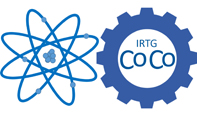14.05.2019 - Tim Langen "Dipolar gases - from magnetic atoms to molecules"
| When |
May 14, 2019
from 06:00 PM to 07:00 PM |
|---|---|
| Where | Physics high rise, Hermann Herder Str. 3, HS II |
| Add event to calendar |
|
Dipolar gases - from magnetic atoms to molecules
Over the last two decades ultracold quantum gases have become a versatile tool in many fields of physics ranging from quantum simulation to non-linear optics and precision measurements. Their particular appeal stems from the precise tunability of nearly all relevant parameters, including the strength of interactions between the particles in the gas. However, the character of these interactions is typically limited to be isotropic and short-ranged. If the particles, on the other hand, feature magnetic or electric dipole moments, interactions can become anisotropic and long-ranged. In this talk I will discuss how this subtle change has recently lead to the discovery of a wealth of new phenomena, including novel states of matter, self-bound quantum liquids, or the emergence of quantum chaos [1].
In the first part of the talk, I will introduce a series of experiments with ultracold dysprosium atoms, which feature the strongest magnetic dipole moment in the periodic table. Such gases can form exotic droplets that are - counterintuitively - stabilized by quantum fluctuations [2]. These droplets are a 100 million times less dense than liquid helium droplets, but exhibit similar liquid-like properties. Moreover, the gases can self-organize into coherent arrays of droplets, which show the properties of a supersolid state [3]. Such a supersolid is a paradoxical state of matter in which atoms assume a rigid periodic pattern, as in a crystal, and yet flow without friction, as in a superfluid.
In the second part of the talk, I will present our ongoing effort to directly laser cool electrically dipolar molecules into the quantum regime. Laser cooling of even the simplest molecules had long been considered impossible due to their complex vibrational and rotational level structure. However, quasi-closed transitions suitable for laser cooling have been identified in many molecules [4]. With typical electric dipole moments of several Debye, such molecules exhibit dipolar interactions that can be orders of magnitude stronger than in magnetically dipolar atoms. Moreover, ultracold molecules will offer unique experimental possibilities for precision measurements and cold chemistry.
[1] T. Langen and M.J. Mark: Ultrakalt magnetisiert, Physik Journal 17, 35 (2018).
[2] M. Schmitt et al.: Self-bound droplets of a dilute magnetic quantum liquid, Nature 539, 259 (2016).
[3] F. Boettcher et al., arxiv:1901.07982 (2019).
[4] M. Tarbutt: Laser cooling of molecules, Contemp. Phys. (2019).


